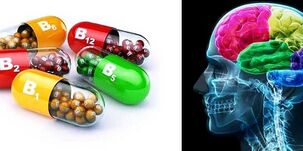
The human brain is an extremely complex device in our body. The center of the nervous system consumes up to 25% of the total energy consumed, while its weight accounts for only up to two percent of the total body weight. For the brain to function fully and uninterrupted, it is necessary to ensure the supply of carbohydrates, proteins, polyunsaturated fatty acids. Food should contain amino acids, minerals and vitamins that are good for the brain and memory.
Brain connection
Let's start by looking at B vitamins that are essential for the central nervous system. They are united by the following elements:
- they contain nitrogen;
- is considered water soluble;
- has a similar effect on the body;
- is often found together in similar products;
Initially, after discovery, scientists believed that they only processed one vitamin, and only over time they discovered that these were different compounds with similar properties. . There are 7 essential B vitamins:
- B1 or thiamine- required for a clear mind and strong memory. In addition, it relieves fatigue, as it is involved in most of the metabolic processes in the body involved in energy production.
- B2 or riboflavin- affects the quality and speed of the brain's response, participates in red blood cell formation, hemoglobin synthesis and iron absorption. Riboflavin is responsible for the activity of the adrenal glands, which affects vision.
- B3 or nicotinic acidis essential for concentration, improving memory. Protect us from stress. Helps red blood cells carry oxygen.
- B5 or pantothenic acidis an essential element that allows the production of neurotransmitters that transmit electrochemical impulses between nerve cells. Pantothenic acid is essential for the synthesis of fatty acids, and is responsible for long-term memory.
- B6 or pyridoxine- is also involved in the production of neurotransmitters. It also helps in the absorption of amino acids that are essential for normal brain function.
- B9 or folic acid- improves memory and speed of thought processes. She is responsible for the formation and functioning of the immune and circulatory systems. It is especially important during the first trimester of pregnancy for the healthy development of the neural tube of the fetus.
- B12- helps form the melamine sheath of nerve cells, responsible for the speed of transmission of nerve impulses. It participates in the formation of red blood cells, meaning it supplies the brain with oxygen.
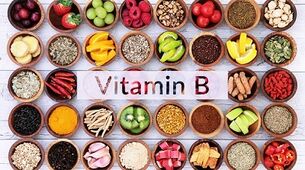
Antioxidants
Billions of cells living in our bodies are constantly under attack from free radicals - molecules that lack one or more electrons. Losing the elementary particles, the cells cannot carry out their functions.
Ascorbic acid, vitamin E and beta-carotene (a metabolic precursor of vitamin A) counteract the damaging effects of free radicals on brain tissue.
These vitamins improve memory and brain function.
Vitamin C is also used by the body to make neurotransmitters and brain cells. The stability and assimilation of substances of group B depend on their level.
Vitamin E is necessary for Alzheimer's disease, which is characterized by the following symptoms: mood swings, memory impairment, irritability, aggression. It can increase the benefits of the action of ascorbic acid, preventing its overdose.
Trace elements, amino acids, polyunsaturated fatty acids
Omega-3 fatty acids affect brain function. They are polyunsaturated fats that our bodies cannot synthesize. Eating foods containing omega-3 can help protect the brain from cognitive decline and improve concentration and memory.
Protein is essential as a building material for our body's cells and it is composed of amino acids.
Almost everything the brain asks for:
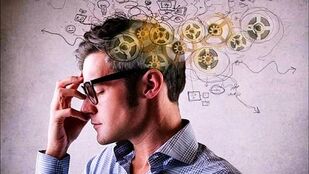
- Glycineis an essential amino acid (ATA), although it is synthesized by the body it must be obtained from food. Glycine normalizes psychological and emotional states, stabilizes brain activity, and to some extent neutralizes the effects of alcohol. This ATK improves sleep, regulates circadian rhythm.
- Tyrosine and Phenylalaninewill fight both depression and anxiety. In a healthy body, they eliminate symptoms of chronic fatigue, improve memory and thinking processes, and increase pain threshold. Phenylalanin is the key ingredient of phenylethylamine that keeps you hooked. Tyrosine is, in turn, the most powerful antidepressant of any amino acids. Thanks to this ATK, not only does the signs of depression disappear, it also reduces the symptoms of the premenstrual cycle. These amino acids help overcome caffeine addiction.
- Tryptophan- an adequate amount into the body will relieve headaches and irritability. Tryptophan helps reduce aggression and is used in the treatment of hyperactivity in children. Drugs containing this substance must be taken in the complex treatment of schizophrenia and psychosis. It is taken orally during the treatment of anorexia and binge eating. To some extent, after taking this amino acid, the depression goes away.
For the brain to function properly, you need to consume enough amino acids with food. The functioning of the central nervous system is incomplete without trace elements.
Zinc deficiency leads to the development of depression, as well as neurological diseases - Alzheimer's and Parkinson's. Magnesium improves learning abilities and memory. Its deficiency can cause headaches, depression and seizures. Copper is essential for the brain to control nerve impulses. If it is not enough in the body, neurodegenerative diseases can develop.
Cognitive nebula and brain dysfunction are clear signs of iron deficiency.
Any product containing more useful things
The undeniable fact is that it is natural for a person to get the vitamins necessary to improve memory and cortical function from natural foods. Consider which of them is best suited for the normal performance of cognitive functions.
The number one leader in vitamin B content is peas. It has beneficial effects on all brain functions. Next is peas - oatmeal - a good assistant for insomnia, good anti-depressant. This is followed by walnuts, unpolished rice (in darker shells), green vegetables, meat and dairy products.
Eating fatty fish improves brain function. It contains a large amount of omega-3 fatty acids, which help stimulate memory and improve information perception.
The human brain is 60% fat, with composition similar to omega-3, so these acids are used to make nerve cells. If you eat this in the right amount, you can suspend mental decline and avoid neurodegenerative diseases as you age. A deficiency in omega-3 in the body can cause a state of depression and impair a person's ability to work.
Coffee contains caffeine and antioxidants that benefit brain function. So, a cup of this aromatic drink not only energizes in the morning but also has a good effect on brain function.
Caffeine allows:
- cheer up;
- increases alertness by inhibiting the synthesis of adenosine, which causes drowsiness;
- increase concentration.

Despite the controversy surrounding aromatic drinks, the caffeine and antioxidants in coffee help brain function more efficiently. Drinking coffee in moderation helps reduce the risk of developing neurodegenerative diseases. But, unfortunately, people with high blood pressure are contraindicated to drink this drink.
Blueberries are another unique and useful product to help fight the aging of nerve cells and the development of brain diseases. This is due to the high antioxidant content in berries. These substances help improve concentration, and sometimes help reduce short-term memory.
The main ingredient in curry, turmeric, not only gives a special flavor to the dish but also to life. Curcumin helps to stimulate blood circulation and memory.
Turmeric is very beneficial because it:
- stimulates the growth of brain cells;
- fights pallor and melancholy: curcumin influences the synthesis of "mood hormones" - serotonin and dopamine;
- stimulates memory, especially needed in patients with Alzheimer's disease.
By adding turmeric to tea and curry foods, you will get the most out of curcumin.
A vegetable like broccoli, loved by most children, contains a large amount of nutrients. One hundred grams of plants contain more than 100% of the daily value of vitamin K: the body uses it to make fat, which is found in large amounts in brain cells.
Vitamin K keeps you awake and the antioxidants in broccoli help the body fight brain damage.
Pumpkin seeds are also a powerful antioxidant. They contain many trace elements: zinc, magnesium, copper, iron. Pumpkin seeds definitely need to be included in your diet to improve quality of mental performance.
Eating a bar of dark chocolate or drinking cocoa is fine. These foods are rich in flavonoids, antioxidants and caffeine that can improve mood and slow brain aging.
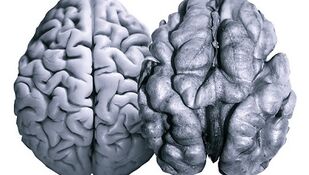
Nuts to add to the list of brain foods. In addition to the B vitamins, they are rich: omega-3 fatty acids, antioxidants, vitamin E. Could the outer resemblance of walnuts and the human brain not be coincidental?
One orange per day in the diet provides the body with the daily requirement of vitamin C, while also preventing brain aging by protecting the brain from free radicals. Vitamin C is found in tomatoes, kiwi, guava, bell peppers, strawberries.
Eggs are an excellent source of vitamins, folate and choline. They prevent brain aging and melancholy.
Despite the fact that eggs' effects on the body have not been fully researched, the benefits of eating them have long been known.
Green tea also improves brain function. It is high in caffeine as well as L-theanine, which can help reduce anxiety, reduce fatigue and relax. Among other things, green tea improves memory.
In short, it must be said that a well-balanced balanced diet is a relatively inexpensive and effective way to improve human brain function and memory.
It's best to eat fresh, organic foods and maintain your daily fluid intake.
Our diet directly affects the steady functioning of the brain. To stay active, in addition to nutrition, you need to regularly exercise and exercise cognitive ability.
Medicines from pharmacies
In the modern world, it is difficult to supply yourself with natural vitamins. During food processing (sterilization, storage, exposure to high and low temperatures) most of the nutrients are lost. The way to deal with this is to compensate for the missing elements by using pharmaceutical-synthesized analogues.
Memory and brain function vitamins for adults and children can be purchased at any pharmacy. Very popular means in which one tablet contains the entire vitamin complex necessary for the brain. It is often associated with trace minerals. A partial holistic approach is also used, which includes vitamins that belong to one group, for example, group B.
Preparations with an active ingredient (folic acid, vitamin C) are also produced. Their advantages include low cost, less frequent overdose and allergic reactions.
There are medicines that include vitamins with nootropic supplements to improve memory and concentration.
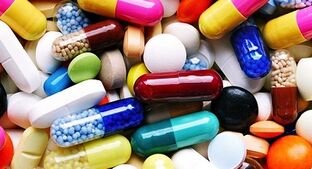
Brain-stimulating amino acids and omega-3 acids stand out separately.
Drugs to improve brain activity have a beneficial effect on the thinking process itself, increase concentration and improve memory. Such vitamins make a person calm and balanced. The elderly need dietary supplements and vitamins, as they firm brain tissue, helping to restore the elasticity of blood vessels.
Don't expect a quick effect from taking vitamins. Changes will be evident with regular medication.
Age-related cognitive decline awaits everyone who has lived long enough. But promptly taken precautions will allow for the maintenance of normal brain function in the future.
You need to eat a balanced diet, try to consume plenty of natural foods containing antioxidants and vitamins for mental performance. During times of emotional stress, lack of seasonal fresh vegetables, and in the old age, people want to replenish the deficiency of vitamins with synthetic drugs.







































































